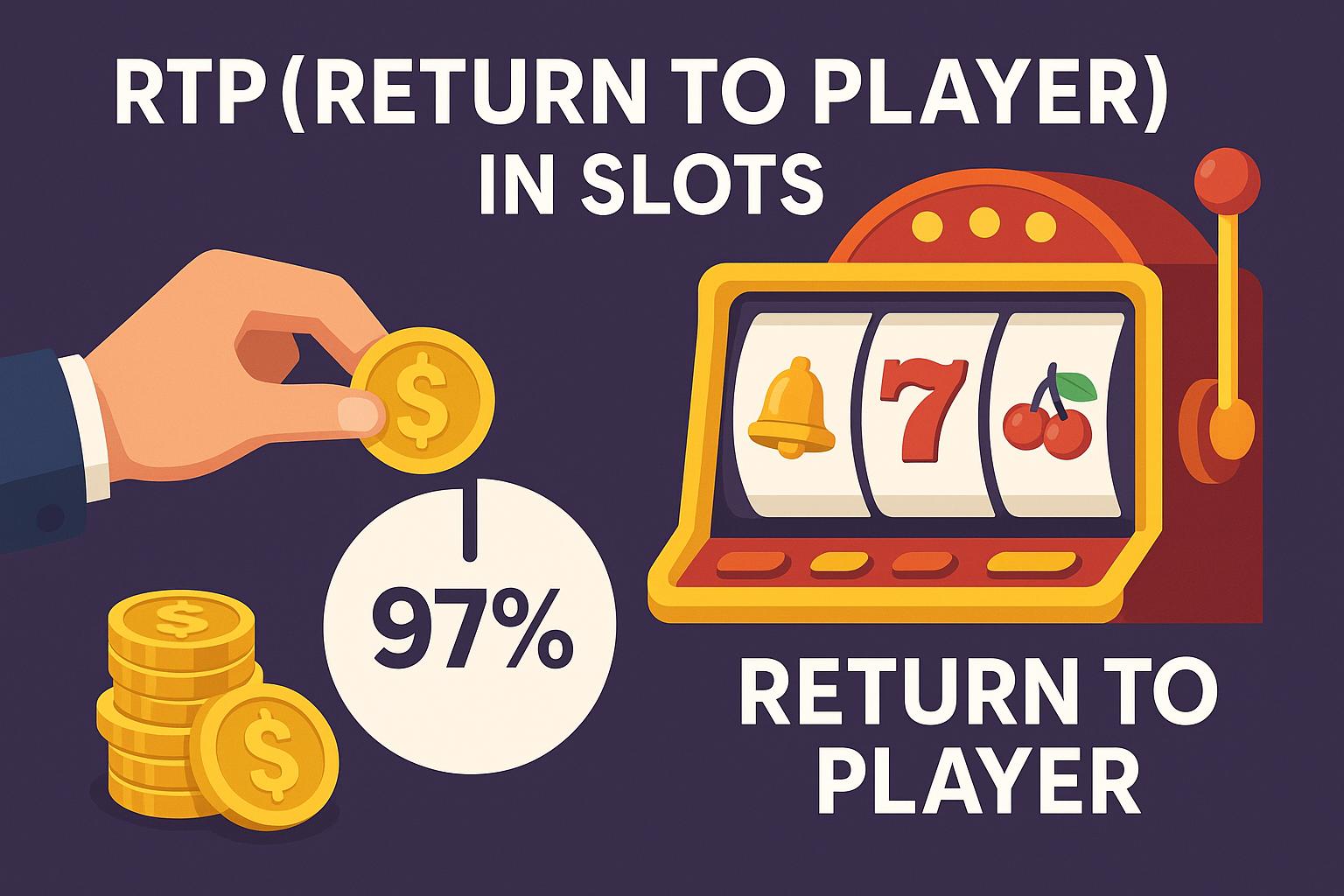
What is RTP (Return to Player) in slots?
Understanding Return to Player (RTP) in Slots
In the world of slot machines, both online and offline, the term Return to Player or RTP often comes up. It’s a key concept that every player should understand before indulging in slot gaming. RTP is a percentage that indicates the amount of all wagered money a slot machine will theoretically pay back to players over time. This figure represents the long-term expected return of the slot.
How RTP Works in Slots
When you see an RTP percentage for a slot, it tells you something about the game’s expected payout behavior. For instance, if a slot game has an RTP of 95%, it means that, theoretically, for every $100 wagered on the game, $95 is returned to players over time. However, this does not guarantee that a player will receive exactly $95 after spending $100. The RTP is calculated over a long period and across many players, so individual short-term experiences can vary significantly.
The Calculation of RTP
RTP is calculated through millions of spins in a controlled environment. Game developers use complex algorithms to compute the RTP of a slot, ensuring it aligns with regulations and expectations. Due to the vast number of spins needed for reliable RTP calculation, the actual gaming experience for players may fluctuate widely from the statistical average, particularly in short sessions.
Why RTP Matters
Knowing a slot’s RTP aids players in making informed decisions. While it doesn’t guarantee short-term results, a higher RTP suggests a better return potential in the long run. Players can use this information to select games that offer a theoretical edge. However, it’s vital to remember that RTP is just one aspect of a slot machine’s payout structure and does not factor in other elements like volatility or bonus features.
RTP and Slot Selection
When choosing slots, RTP is a critical element to consider. Many online casinos display the RTP of each game in their library, providing transparency and helping players identify potentially rewarding games. Although a higher RTP offers better theoretical returns, players should also consider personal preferences, such as theme, graphics, and extra features, when selecting a slot machine.
In conclusion, understanding RTP equips players with essential insights into how slots are designed to function over time. By considering RTP along with other factors, players can enhance their gaming experience and make more informed choices.
Breaking Down the RTP Formula
The calculation of RTP involves several factors. When a slot machine is developed, software developers build random number generators into the game, which are responsible for generating the outcomes of each spin. The randomness introduced ensures that the slot maintains fairness and unpredictability.
The Importance of Long-Term Horizon
The RTP percentage is calculated over a vast number of spins, often millions. This extensive data sampling allows developers to calculate a highly reliable average return percentage. However, for individual players, especially those with limited betting durations, their experiences may vary significantly from the averaged RTP. The longer the play session, the likelier the actual returns will reflect the theoretical RTP.
RTP vs. House Edge
Both RTP and house edge are metrics used to describe a casino game’s favorability. While RTP refers to the percentage of wagered money expected to return to players, the house edge is the casino’s profit margin over the long run. For instance, a slot with an RTP of 95% effectively has a house edge of 5%. It’s important for players to understand these metrics to evaluate their chances of success across different games.
The Role of Gaming Commissions
RTP percentages are often regulated and must meet certain standards set by gaming commissions and regulatory bodies. These organizations audit and verify the fairness and integrity of the slot machines to ensure players are given a fair chance. Compliance with these standards is essential for online casinos seeking a reputable status.
Implications for Casino Operators
For casino operators, understanding and managing RTP is critical for maintaining a balanced offering of games that attract players while ensuring profitability. Offering games with a wide range of RTPs caters to different player strategies and preferences. However, operators must ensure that their advertised RTPs are accurate and comply with regulatory requirements.
RTP in Game Strategy
Players often strategize based on RTP, seeking games with higher percentages to increase their potential returns. While RTP provides valuable insights, players should be aware that it doesn’t account for other factors that influence gameplay experience and outcomes.
Complementary Elements to RTP
While RTP is a fundamental metric, other aspects like volatility, payout frequency, and bonus rounds greatly impact the overall gaming experience. Volatility, for example, dictates the risk level and the size and frequency of payouts. High volatility games can offer larger payouts but tend to be less frequent, whereas low volatility games provide more consistent, smaller wins.
Finding a Balanced Approach
Players often benefit from finding a balance between RTP, volatility, and their personal gaming preferences. Those who enjoy high-risk, high-reward scenarios might lean towards games with high volatility, regardless of the RTP. Conversely, players seeking consistent returns may prioritize RTP but choose lower volatility games.
Customization and Personal Choice
Modern slot games offer players numerous choices, allowing customization of the gaming experience. Themes ranging from ancient civilizations to futuristic landscapes provide entertainment alongside the gambling aspect. Consequently, understanding RTP allows players to intelligently navigate vast game selections and tailor their choices to maximize enjoyment and potential returns.
Future Trends in RTP Awareness
As players become more informed and savvy about slot machine mechanics, the demand for transparency in RTP reporting will likely increase. Enhanced digital platforms enable players to access detailed game statistics, fostering a more knowledgeable player base. This trend pushes casinos and game developers to innovate while maintaining honesty about what players can expect from their choices.
By gaining a comprehensive understanding of RTP and integrating it into their gaming approach, players can navigate the slot landscape more effectively, ultimately leading to a more rewarding experience. Whether online or in traditional casinos, the principle of RTP serves as a valuable tool in the player’s arsenal.

